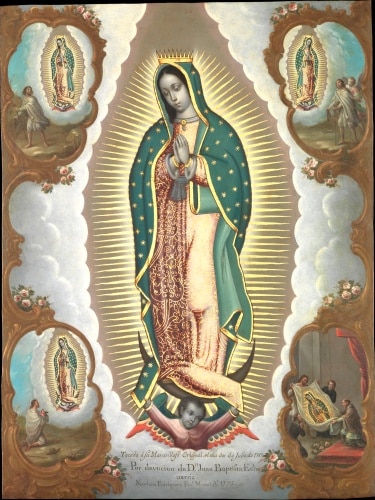The Lumen Christi Institute’s upcoming Hispanic Theology Series, featuring top Latino/a scholars and focused on sharing the richness and depth of Latino Catholic communities, is sponsored by a recent grant of $16,350 from Our Sunday Visitor Institute.
The series, set to relaunch this spring, has two goals. The first is to reach out to young theologians and ministry leaders, who are working to create bridges in the church, and to make the insights of the Catholic intellectual tradition more available to them. The second is to transmit the Latino Catholic community’s theological and spiritual insights to the broader church.
In recent decades, the Catholic Church in the United States has seen considerable demographic shifts. Today, almost 50 percent of Catholics in the United States are Latino and most of the growth of the Catholic Church in the United States is among the Latino communities. While growth is positive, these shifts also pose several evangelical and ministerial challenges, as the church must find ways to work through cultural and linguistic divides, to bring its laity together, and to find effective paths for bicultural evangelization.
The Lumen Christi Institute is mindful that the centerpiece of its mission — the Catholic intellectual tradition — is a shared, living heritage of the whole church, and can contribue to these objectives.
The Hispanic Theology Series first launched in April 2019, with a lecture on St. Oscar Romero, by Dr. Michel Lee of Fordham University. Six months later, Professor Carlos Eire of Yale University spoke on St. Teresa of Avila and his personal memoir. Hosffman Ospino of Boston College presented on the changing demographics of the Catholic Church in the United States in March 2020. The latter two professors gave public lectures at the University of Chicago, master classes for undergraduate and graduate students, and workshops for lay leaders. More than 300 people attended these events.
After a successful start, and a short interruption due to the pandemic, the series will continue its programming online in spring 2021. The lectures, panel discussions and interactive workshops (listed in the calendar of events below), will survey contributions to the Catholic intellectual tradition by Latino/a scholars. The topics will range from Latino Christology, to a Latino theology of disability, and the quotidian devotion of Our Lady of Guadalupe.
This series is made possible by a generous grant from the Our Sunday Visitor Institute and cosponsored by ACHTUS: The Academy of Catholic Hispanic Theologians of the US , La Comunidad of Hispanic Scholars of Religion, Corazón Puro, the Collegium Institute, the Hispanic Theological Initiative, Saint Benedict Institute, the Nova Forum, Calvert House Catholic Ministry, Dominican University Ministry Program, the Ecclesia in America Network, the Hank Center for the Catholic Intellectual Heritage, the Harvard Catholic Forum, the Óscar Romero Scholars Program at Catholic Theological Union, Iskali, Commonweal Magazine, and America Media.
Schedule
APRIL 13 Teaching Catholic Doctrine en Español, with Hosffman Ospino (Boston College)
April 20 Globalization from the People: Fratelli Tutti and the Latino Social Teaching of Pope Francis, with David Lantigua (University of Notre Dame)
April 27 Was Something Lost? Thomas Aquinas, Intellectual Disability, and the 16th century Spanish Colonial Debates, with Miguel Romero (Salve Regina University)
May 4 Latino Youth and Evangelization, with Claudia Herrera (ACHTUS)
May 11 Beauty and Justice in the City: the Restoration of St. Adalbert’s, in Pilsen, with Michelle Gonzalez Maldonado (University of Scranton), Peter Casarella (Duke University), and Juan Soto (Gamaliel)
May 18 Latino Christology, with Roberto Goizueta (Boston College) and Neomi de Anda (University of Dayton)
May 25 The Ethics of Immigration, with Victor Carmona (University of San Diego) and Nichole Flores (University of Virginia)
June 1 Future Directions of Hispanic Theology with Peter Casarella (Duke University) and Michelle Gonzalez Maldonado (University of Scranton)
